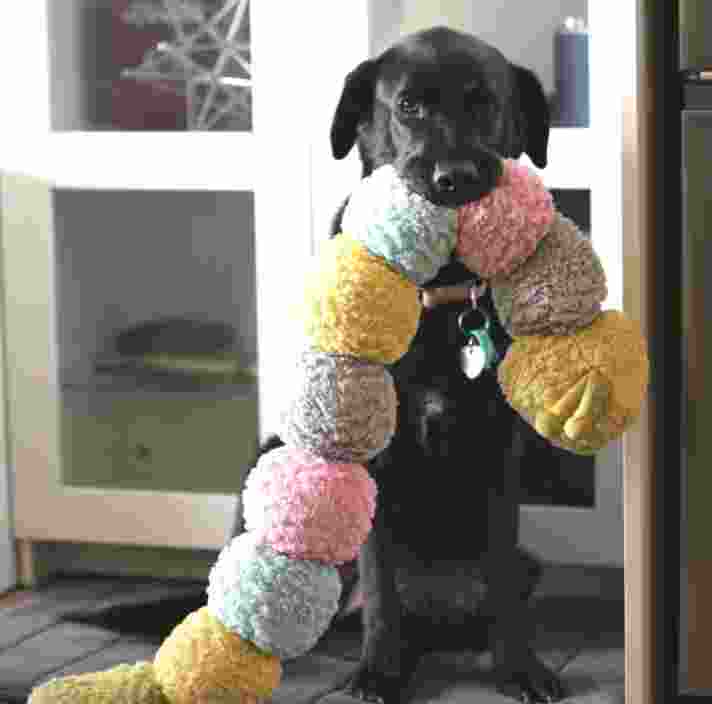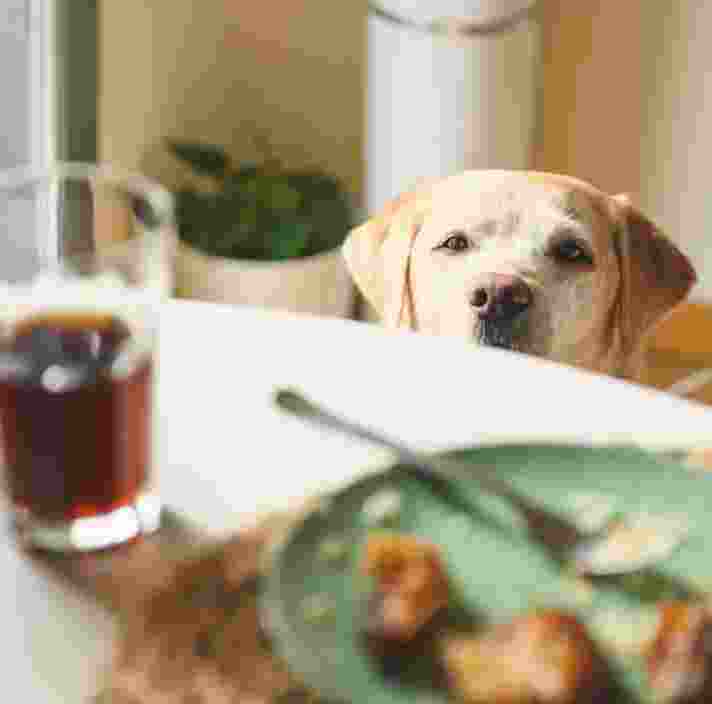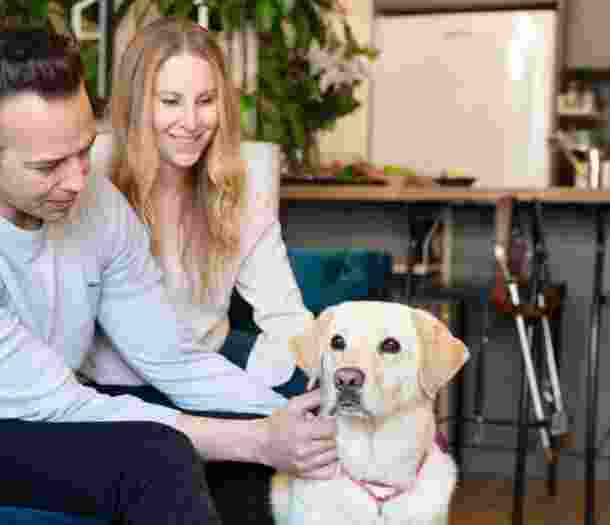Understanding the Commitment
Boarding carers play a flexible but vital role in our Guide Dogs community. Whether you’re supporting a puppy in training, a working dog needing temporary care, or a dog in transition, your support helps ensure continuity and comfort in the dog’s journey. By providing this essential care, you’re directly contributing to our mission—supporting people with low or no vision to live independently and confidently.
Most boarding stays are short term—typically one to two weeks—though this can vary depending on the dog’s needs and available resources. Regardless of the duration, your role is to provide a safe, nurturing, and comfortable environment for the dog.
As a boarding carer, you’ll be responsible for feeding the dog, providing regular exercise, and administering any required medication. Some dogs may need to attend daily training at our Training Centre in Bald Hills, which means you would need to drop them off by 7am and collect them at 4pm.
We’ll provide you with basic training techniques to support the dog, but your primary responsibility is to ensure they are happy, healthy, and well cared for. You’ll need to spend a significant amount of time with the dog and ensure they sleep indoors. Most of our dogs should not be left home alone for more than four hours at a time.
If you love dogs and want to make a meaningful difference in your community, becoming a boarding carer is a rewarding way to help change lives. We’d love to welcome you to the team!
Responsibilities
Being a boarding carer is a rewarding and life-changing experience, but it comes with real responsibility. It’s important to ensure you’re able to meet the needs of the dog and support their development.
Your Time Commitment
Can you open your home to a dog when needed?
- Are you able to care for a dog for short stays (1-2 weeks), with occasional longer placements if required?
- Are you willing to provide day-to-day care, companionship, and routine during their time with you?
- Can you be available to transport the dog to our Bald Hills campus if required?
- Are you open to being contacted on short notice for emergency or gap placements?

Looking After Your Own Safety
Caring for dogs—even temporarily—comes with physical demands.
- Can you confidently walk and manage a dog weighing up to 40kg on lead?
- Are you able to lift, bend, clean, or respond quickly if the dog becomes distressed or excited?
- Are you comfortable managing a dog who may be new to your home and adjusting to a different routine?
Ensuring the Dog’s Safety
You provide a temporary home—but safety is never short-term.
- Is your yard securely fenced, with no escape points or hazards?
- Do you have an indoor space for the dog to rest, relax, and feel safe?
- Can you prevent access to toxic plants, small objects, open water, or unsafe areas?
- Are you committed to supervising the dog when outdoors, and ensuring they are only off-lead in safely fenced areas?
Creating a Calm and Consistent Environment
Even during short stays, dogs benefit from structure.
- Can you maintain the dog’s routine for feeding, toileting, and settling?
- Will you reinforce basic manners, such as no jumping, barking, or chewing?
- Are you prepared to keep the dog mentally stimulated and physically comfortable, especially if they are in transition or recovering?
Household Expectations
A supportive home environment makes all the difference.
- Is your household aware that a Guide Dogs dog may be staying temporarily?
- Do you have other pets, and are they calm and compatible with a visiting dog?
- Are all members of your household happy to follow Guide Dogs Queensland’s expectations—such as no feeding off plates, on-lead exercise, and no rough play?

Staying Focused on the Mission
Even a few days in the right home can make a lasting impact.
- Will you follow the care plan provided by Guide Dogs Queensland for the specific dog in your care?
- Are you able to respond to emails or phone calls promptly, especially during the placement?
- Can you provide timely updates about the dog’s health or behaviour, particularly if concerns arise?
Supporting the Dog’s Health and Wellbeing
Your support ensures a smooth stay—especially during times of change.
- Will you monitor the dog’s condition, appetite, and energy, and report anything unusual?
- Are you happy to administer prescribed medications, flea/tick treatments, or other care routines, with support from our team?
- Can you groom the dog as needed, or follow up with staff if unsure?
Guide Dogs Queensland’s Responsibilities
We’ll provide you with everything you need for a safe and supported experience.
- Treat all volunteers and the public with respect, friendliness, and consideration.
- Care for every dog using modern, kind training approaches that reflect current best-practice.
- Match dogs to carers based on availability, household dynamics, and dog needs.
- Provide food, bedding, and equipment for each stay.
- Cover the cost of veterinary care during the boarding period.
- Offer support and guidance through our Volunteer Team, including phone and email check-ins.
- Keep you informed of the dog’s background, routine, and any special considerations before placement.
Public Access Rights
Please note: Boarding dogs do not have public access rights. They cannot accompany you into public spaces, such as cafes, offices, or shops—even if they are well-behaved.
Policies and Compliance
To ensure the best outcomes for our programs, all boarding carers must adhere to our policies and procedures.
Volunteer to support a future Guide Dog
Expression of Interest
Ready to continue?
Seems like you have filled this form earlier. Let’s pick up where you left off.
